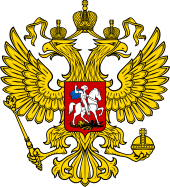| Yarovaya law | |
|---|---|
 | |
| Federal Assembly | |
| |
| Citation | 374-FZ 375-FZ |
| Territorial extent | Russia |
| Signed by | President Vladimir Putin |
| Signed | 7 July 2016 |
| Commenced | 20 July 2016 1 July 2018 |
| Legislative history | |
| Introduced by | Irina Yarovaya (YR) Aleksey Pushkov (YR) Nadezhda Gerasimova (YR) |
| First reading | 24 June 2016 (State Duma) |
| Second reading | 29 June 2016 (Federation Council) |
| Related legislation | |
| Criminal Code of Russia Law Against Rehabilitation of Nazism | |
| Keywords | |
| Religious freedom in Russia | |
| Status: Current legislation | |
The Yarovaya law (in Russian: Закон Яровой, transliteration: Zakon Jarovoy), also Yarovaya package or Yarovaya — Ozerov package is a set of two Russian federal bills, 374-FZ and 375-FZ, passed in 2016.[1] The bills amend previous counter-terrorism laws and separate laws which regulate additional counter-terror and public safety measures. The public names the law after the last name of one of its creators—Irina Yarovaya.
The amendments included an expansion of authority for law enforcement agencies, new requirements for data collection and mandatory decoding in the telecommunications industry, as well as the increased regulation of evangelism, including a ban on the performance of "missionary activities" in non-religious settings.